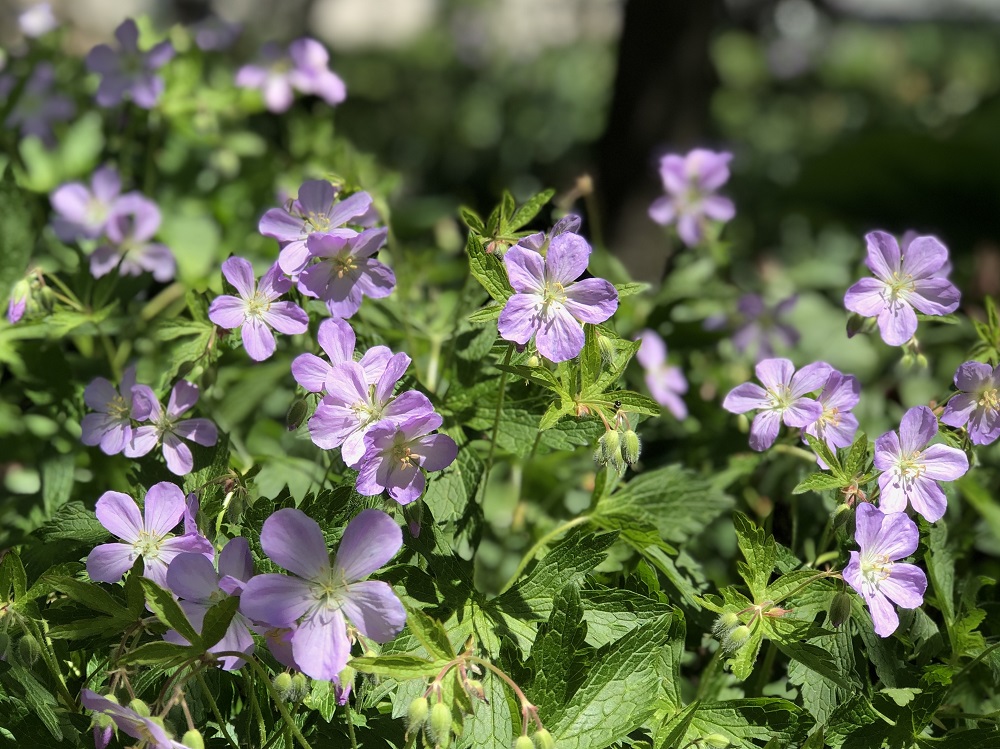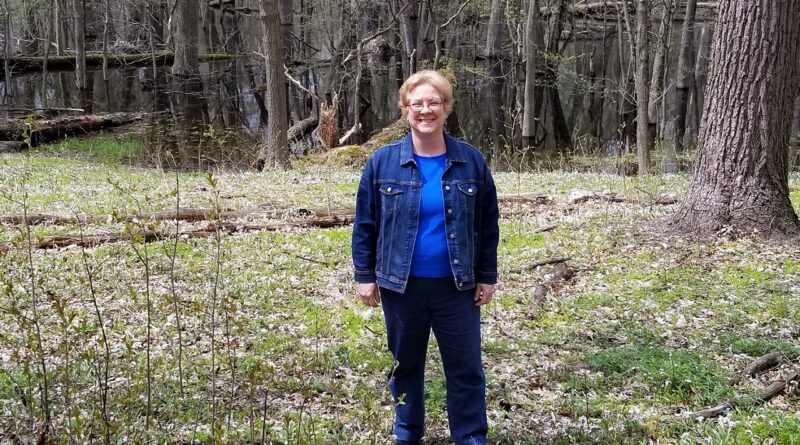Start with Something Simple and Beautiful
Podcast: Play in new window | Download (Duration: 2:02:40 — 58.2MB)
Subscribe: Apple Podcasts | Spotify | Android | iHeartRadio | Podchaser | Email | TuneIn | RSS | More
(May 23, 2021) You can’t get better gardening advice than “start with something simple and beautiful.” Especially the “simple” part. It’s not surprising that those words come from Chicago’s preeminent garden writer for the past 30 years, Beth Botts. For 22 years, she was an editor and reporter for the Chicago Tribune, until they lost their ever loving minds. Her articles still appear there, though under the auspices of The Morton Arboretum, where she is a senior writer. Throw in an editing stint at the late, great Chicagoland Gardening Magazine and authorship of Illinois, Indiana & Ohio Month-by-Month Gardening, and that’s a pretty good start.
Oh, I almost forgot! Beth has even been known to be a fill-in host for this very show. She’s way overqualified for that job, if you ask me.
Anyway, Beth is back on the show today to talk about smart ways to garden, especially if you’re just starting. Something simple. Something beautiful. That kind of stuff. We chatted the other day, we want to discuss these topics. Manage your shade garden. How to pick a plant. Watering during a drought. You get the idea. Basics.

Meanwhile, you can learn a lot from this sampling of her recent articles.
- 12 dos and don’ts for early spring gardening
- Warm spring days, sporadic rain mean gardens might need extra watering in April
- How to choose the right plants for your garden this spring
- Picking the right tree or shrub for your garden can be tricky. Here are tips to keep in mind.
- Too much fertilizer can dry out plants’ tissue
- Does your outdoor plant need fertilizer? It’s less critical than you’d think — and can be damaging if used wrong
We’re dishing good gardening advice this morning. Tune in.
Clean energy isn’t something simple
In 2016, the future looked very bright for clean energy in Illinois. In five years, however, that outlook has changed considerably. An Inside Climate News/Sun-Times special report explains.
The Future Energy Jobs Act [FEJA] brought together environmental groups, the owner of the nuclear plants—Exelon Corp., unions and consumer advocates. The result was a plan marrying nuclear subsidies with support for renewable energy that purported to create tens of thousands of solar power jobs as well as put the state on track to move away from fossil fuels and meet its pre-existing target of having 25 percent renewable energy by 2025.
But the rollout didn’t go as expected. As solar energy expert Lisa Albrecht reported on this show in December, there was a rush to be part of the solar revolution in Illinois. In fact, that desire far outstripped available funding. As she wrote then,
Renewable Energy Credits may be gone by the end of the year leaving the industry totally empty handed for 2021. There will be massive layoffs and some companies are already pulling up roots.
It didn’t help that Excelon and its subsidiary ComEd got caught up in a federal bribery scandal last year. Under the FEJA law, ComEd received $2.3 billion in ratepayer-funded subsidies for two of its nuclear power plants. However, according to prosecutors, the company gave cash, jobs and contracts to associates of former Illinois House Speaker Michael Madigan in an alleged pay-to-play scheme.
The challenge in 2021
So, despite the promise of FEJA, the solar industry accounted for less than 1% of the state’s electricity generation in 2020. On the other hand, the law led to more than 20,000 completed small-scale projects.
Fast forward to the present. The Illinois General Assembly is in the home stretch of its spring session. In fact, legislators have until May 31 to get their work done. Renewable energy programs are in danger of losing more than $300 million in funding for renewable energy programs. In addition, several competing energy bills are competing for legislators’ votes. To get a very clear view of those bills, their strengths and weaknesses, check out this comprehensive article by Kari Lydersen in Energy News Network.
Those measures include a bill proposed by Governor J.B. Priztker, called the Consumers and Climate First Act. Another, which Albrecht and the Illinois Solar Energy Association (ISEA) support, is called The Path to 100.
The Clean Energy Jobs Act (CEJA) has the backing of the Illinois Environmental Council (IEC) Natural Resources Defense Council (NRDC), Illinois Faith in Place and dozens of other members of the Clean Jobs Coalition. Today, we welcome IEC Deputy Director Colleen Smith to discuss prospects for a bright clean energy future in Illinois.


